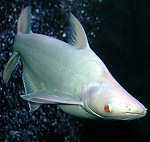 At yesterday’s Export Update Conference conducted by BIS, Christopher Padilla, Assistant Secretary for Export Administration, announced that BIS was planning to expand its new concept of Validated End Users, or VEUs, beyond the proposed China catch-all regulations to other countries. Mr. Padilla suggested that the first such country might be India. While Mr. Padilla’s enthusiasm, as a newly-minted Assistant Secretary, is understandable, it still seems hard to see why BIS is talking about expanding the VEU process this early in the game.
At yesterday’s Export Update Conference conducted by BIS, Christopher Padilla, Assistant Secretary for Export Administration, announced that BIS was planning to expand its new concept of Validated End Users, or VEUs, beyond the proposed China catch-all regulations to other countries. Mr. Padilla suggested that the first such country might be India. While Mr. Padilla’s enthusiasm, as a newly-minted Assistant Secretary, is understandable, it still seems hard to see why BIS is talking about expanding the VEU process this early in the game.
A number of obstacles to the VEU program are apparent on its face, particularly as further elaborated last Friday when BIS posted on its website a “Supplemental Guidance” to the proposed China rules. That Supplemental Guidance reiterates that any company seeking to be accredited as a VEU will need to agree “to on-site compliance reviews by representatives of the U.S. Government.”
It is far from certain that China, India or other countries will countenance these on-site compliance checks by U.S. government officials. Some countries are often a little touchy about this sovereignty business. Other countries may not really care to assist the U.S. enforce its own export laws. China, for example, has not permitted either Commerce’s in-country post-shipment verifications for individual shipments by Commerce or the analogous “Blue Lantern” checks conducted by State.
The Supplemental Guidance also indicates that a VEU application would need to list all ECCNs down to the subcategory level that would be exported to the VEU . The VEU application would also be required to provide a description of the intended use of each particular item. To the extent that the VEU application requires such detail, it is not demonstrably easier than an individual license application, and thus it is unlikely that this would be an attractive option to exporters or end-users.
My (unsolicited) advice to BIS: you might want to get the VEU program working in China (or anywhere else for that matter) before revealing grandiose plans to expand it throughout the world.

 Posted by
Posted by  Category:
Category: 

 BIS released today a document entitled “
BIS released today a document entitled “ In the continuing D-Trade saga at DDTC, part of ELLIE vanished yesterday. ELLIE was the electronic predecessor to D-Trade. DDTC
In the continuing D-Trade saga at DDTC, part of ELLIE vanished yesterday. ELLIE was the electronic predecessor to D-Trade. DDTC  This week the U.S. Court of Appeals for the Ninth Circuit released its opinion in
This week the U.S. Court of Appeals for the Ninth Circuit released its opinion in False labelling of exported goods can land exporters in a world of trouble and sometimes in places they don’t expect. We
False labelling of exported goods can land exporters in a world of trouble and sometimes in places they don’t expect. We 

